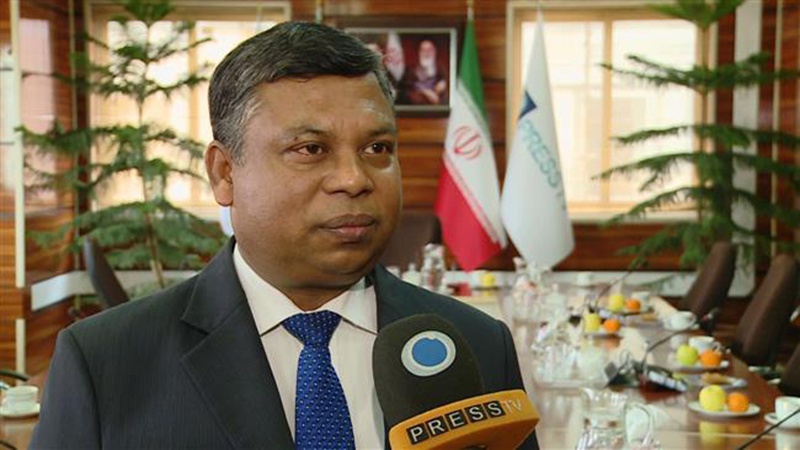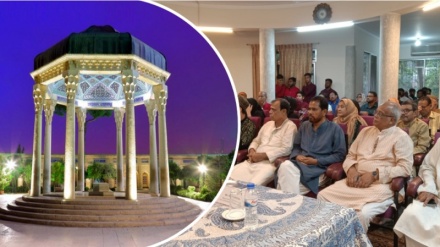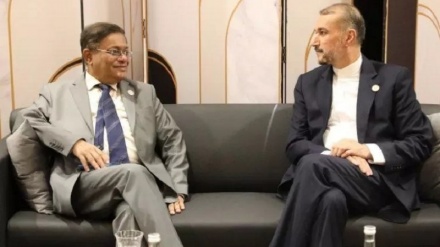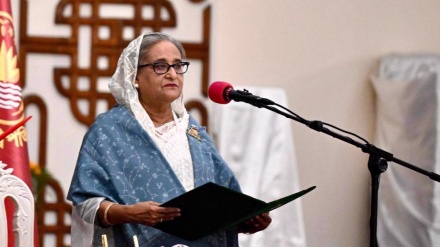Bangladesh assisting Rohingya refugees: Diplomat
Bangladesh’s ambassador to Iran says his country is providing the Rohingya Muslim refugees from Myanmar with basic needs and other types of assistance.
Gousal Azam Sarker, Bangladesh’s ambassador to Iran, made the comment in an exclusive interview with Press TV during a visit to the news network’s headquarters in the capital, Tehran, on Wednesday.
“The Rohingyas were sheltered in Bangladesh and that was from a decision of our honorable Prime Minister Sheikh Hasina. She took a decision to open the border and open the heart of Bangladesh and shelter them in our district of Cox’s Bazaar, so, despite being a resource-constrained country and different developmental challenges, we have given them shelter in Cox’s Bazaar,” Azam Sarker said in the interview.
“They are possibly the largest displaced community sheltered in one place in the world, and the government of Bangladesh, with its resource constraints…, has been meeting their basic needs in the camps and we are constantly improving their situation in the camps and providing basic needs,” he said.
The Bangladeshi envoy, citing Prime Minister Hasina, underlined Bangladesh’s resolve to provide for the Rohingya Muslim refugees from Myanmar even if Bangladeshis were forced to skip a meal.
“So, they are there and we are continuing to provide support and assistance, and honorable prime minister has said that even if we have to eat one time less a day, we will continue to support this helpless Muslim minority of Myanmar in Bangladesh,” Azam Sarker said.
Hundreds of thousands of persecuted Rohingya Muslims are camped in squalid conditions in Bangladesh. They have escaped genocide in neighboring Myanmar.
Myanmar’s armed forces, backed by Buddhist extremists, launched a state-sponsored crackdown against the Rohingya Muslims in Rakhine in 2018. Thousands were killed.
The crackdown — described by the UN as the textbook example of ethnic cleansing — forced some 700,000 Rohingya to flee to neighboring Bangladesh, where they are living in overcrowded refugee camps in dire conditions.
SS



